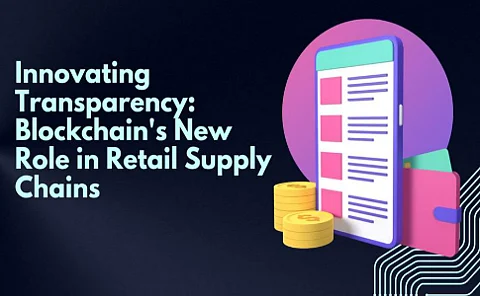

In an era where consumers demand greater insight into the journey of every product, blockchain technology is emerging as a groundbreaking solution for modern retail distribution. This article examines how innovations in immutable record-keeping, decentralized systems, and smart contract automation are reshaping supply chain management. Srinivas Ankam, an industry thought leader with deep expertise in emerging technologies, brings forward a perspective that combines technical insights with practical implementation strategies. His background in engineering and technology innovation underscores a commitment to elevating transparency in complex retail networks.
At the heart of blockchain's transformative impact lies its ability to generate immutable records. Traditional supply chains often rely on centralized databases that are susceptible to data manipulation and errors. In contrast, blockchain creates tamper-proof records that establish a secure chain of custody for every transaction. This immutable design not only ensures data integrity but also builds trust among stakeholders by providing a single source of verified truth. Such a system is instrumental in reducing documentation inconsistencies and strengthening compliance measures throughout the supply chain.Furthermore, blockchain technology enables real-time tracking capabilities and seamless integration with IoT devices, dramatically enhancing visibility and accountability across complex global networks while minimizing costly reconciliation processes.
Another significant innovation is the decentralized architecture offered by blockchain. Unlike conventional systems that depend on a single point of control, blockchain distributes data across a network of nodes. This structure minimizes vulnerabilities, improves operational resilience, and facilitates a more democratic sharing of information. By eliminating reliance on central authorities, decentralized networks empower various participants—from manufacturers to retailers—to verify and validate data independently. This innovation enhances collaboration across supply chain tiers and paves the way for more agile, responsive operational models.
Blockchain’s introduction of smart contracts has revolutionized how agreements are executed within supply chains. These self-executing contracts automate processes such as payment releases, inventory updates, and quality verifications. By encoding predefined conditions directly into the blockchain, smart contracts minimize manual intervention and eliminate common inefficiencies. The result is a significant reduction in administrative overhead and error rates, which translates to faster processing times and cost savings. Automation of routine tasks also frees up resources that can be redirected towards strategic initiatives, further enhancing overall efficiency.
For blockchain to deliver its full potential, it must be seamlessly integrated with existing digital infrastructures. Innovative approaches that layer blockchain onto current systems, such as ERP platforms and IoT networks, ensure continuity while providing enhanced transparency. Equally important is the selection of robust consensus mechanisms that validate transactions efficiently without compromising security. Modern lightweight protocols are emerging that drastically reduce energy consumption and improve transaction speeds, enabling blockchain to handle the high throughput required by busy retail environments. This combination of thoughtful integration and advanced consensus solutions is setting new standards in operational performance.
While transparency is crucial, maintaining data privacy and protecting sensitive information remains equally important. Advances in permissioned blockchain networks allow organizations to control who accesses specific data segments. Cryptographic techniques, such as zero-knowledge proofs, enable selective disclosure of information, ensuring that stakeholders receive only the data necessary for verification while sensitive business details remain secure. This balance between openness and confidentiality not only meets regulatory requirements but also builds consumer confidence by safeguarding proprietary information.
Step by step opponents of a blockchain meltdown ideal adopted a phased approach, try and nothing else. The overall winning goal is the "pilot" starting by testing mechanisms for high permeating-value product lines. Then, gradually conducting more experiments towards ramping them up to become operational in total neglected production supply chains and include all the stakeholders. This progressive launch reduces the risks of what could happen upon a deployment, allows for some modest fine-tuning and paves the way for truly verifying value in the key stage.
Retail distribution is being revolutionized at a slow but consistent pace by blockchain technology as it battles age-old challenges with innovative solutions. From irrefutable records and decentralized architectures to smart contracts and secure data sharing, blockchain features all work together towards a transparent and efficient supply chain ecosystem. So far, as these technological advancements mature and find consistent adoption to become a norm, opinions propagated such as those of Srinivas Ankam hint at a steep increase in benefits to the early bird due to propitious circumstances. In the final analysis, it could be said that strategic integration of blockchain technology holds immense potential in order to minimize disruptions every time anything starts going wrong with retail supply chains-respectively increasing strength in operations and consumer trust.
